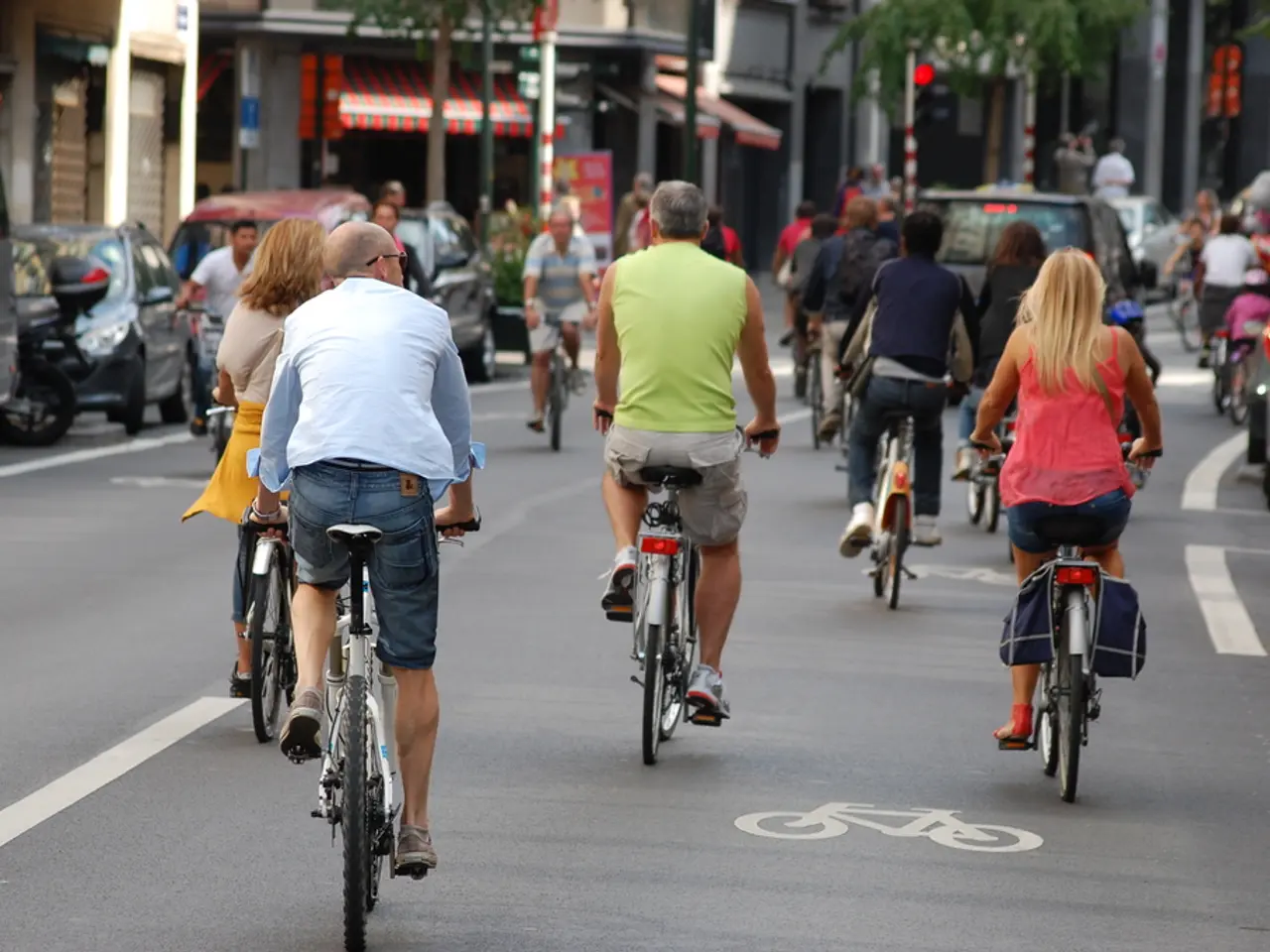Baidu and Lyft set to introduce Eurobocab, a new autonomous vehicle taxi service, commencing operations in the UK and Germany in the upcoming year
In an exciting development for the future of transportation, autonomous robo-cabs are expected to hit the streets of the UK and Germany as early as 2026.
The UK government is finalizing The Automated Vehicles Bill, aiming for a legal framework to be in place by the end of 2025, paving the way for self-driving taxi services under strict safety and insurance regulations. Pilot schemes without safety drivers were already announced for mid-2025, with broader commercial robotaxi services anticipated starting in 2026.
Tesla is testing its Full Self-Driving (FSD) software in UK cities such as London and Swindon, currently operating at Level 2 autonomy (driver-supervised), with plans for a robotaxi launch pending regulation.
Meanwhile, in Germany, the Road Traffic Act permits highly automated vehicles under specific conditions, but local authorities must issue individual approvals for autonomous vehicle operations. Lyft and Baidu plan to launch robotaxi services in Germany starting in 2026, although the timeline depends on regional regulatory approvals.
Uber has announced plans to operate robo-cabs in Europe with another Chinese company called Momenta. The companies aim to start offering robo-rides in the UK and Germany next year, using the same Baidu Apollo cabs already operating in China. It is unclear, however, whether Lyft and Baidu plan to operate on all roads.
Germany hopes robot cars will operate on its motorways in 2028 and aspires to have autonomous vehicles as a permanent part of a multimodal and interconnected mobility system around 2030.
Lyft will use ride-share app FREENOW, which it recently acquired, to arrange rides in Baidu's robo-cabs. The announcement suggests that other robo-cars could follow from Lyft, but no further details have been provided.
The deployment of autonomous robo-cabs in the UK and Germany marks a significant step forward in the development and integration of autonomous vehicles into our daily lives. As the regulatory landscape continues to evolve, we can expect to see more companies entering the market, bringing the promise of safer, more efficient, and more accessible transportation to the public.
| Country | Regulation Status | Deployment Timeline | Safety Driver Requirement | Key Players | |----------|---------------------------------------------------|-----------------------------|-------------------------------------------|------------------------------| | UK | Automated Vehicles Bill pending (legal framework expected by end 2025) | Pilot schemes mid-2025; robocabs commercially from 2026 | Initially may require supervision, but pilot without safety drivers allowed | Tesla, Lyft, Baidu, others | | Germany | Road Traffic Act permits automation with conditions; local authority approvals required | Planned launches starting 2026; timeline depends on regulatory approval | Uncertain if operation without safety drivers will be allowed soon | Lyft, Baidu |
This reflects the latest available data from mid-2025 and early 2026 planning.
aitechnology is being tested by Tesla in the UK for their Full Self-Driving (FSD) software, aiming to launch robotaxis with safety drivers.Software giants like Baidu, in collaboration with Uber and Lyft, are also planning to roll out their robotaxi services in the UK and Germany, using Baidu's autonomous vehicles, subject to regulatory approval.




